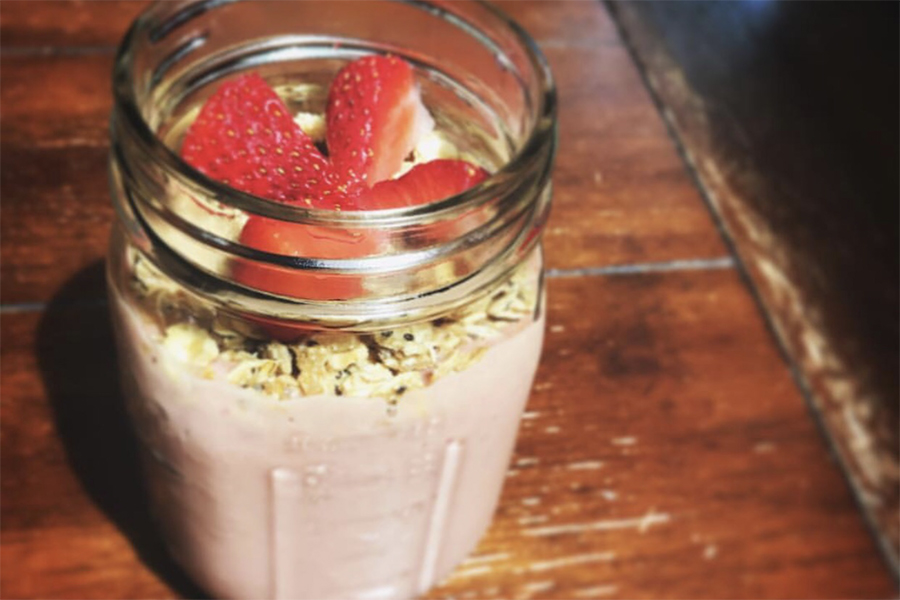This Is What a Registered Dietitian Eats for Breakfast
Lexy Penney, of Shanti Nutrition, believes nutrition is not one size fits all and specializes in digestive health and overall wellness.
We don’t need to tell you that breakfast is the most important meal of the day. In this series, we’re asking top doctors, fitness pros, and dietitians for a sneak peek into their kitchens, so we can see what’s on their breakfast tables.

Photo provided
Lexy Penney
Claim to Fame:
After suffering from small intestinal bacteria growth (SIBO) and Celiac’s disease and working in a clinical setting, Lexy Penney holds a strong belief in healing her clients from within. She is a Boston-based registered dietitian specializing in digestive health and overall wellness and says nutrition is everything to her.
What She Ate:
Don’t think you have enough time to make a smoothie in the morning? Penney has timed herself making her favorite breakfast smoothie and it only takes her two minutes. She also throws the blender right in the sink to be rinsed when she’s done making it, so cleanup is a breeze.
This is the recipe for her favorite breakfast go-to:
- About 3-4 frozen strawberries,
- 1/2 cup raw oats (she uses gluten free)
- 1 tablespoon peanut or almond butter
- 1 banana (fresh, not frozen because she likes the texture the fresh banana makes
- Splash of almond milk
- Two scoops of protein powder (she uses Equilibrium Daily Nutritional Support Vanilla)
Why She Chose It:
“For me, balance includes all foods,” Penney says. “There are no ‘good’ or ‘bad’ foods—no food fear here! But I do know that there are certain foods I need to eat on a regular basis (based on what my body tells me) to feel good, particularly whole foods like fruits, veggies, oats, and beans. Eating a breakfast that makes me feel good, rich in these foods, sets me up for success in all areas.”
She strongly believes nutrition is not one-size-fits-all and the most important thing she asks clients to do is listen to their own bodies. “Ignore what you’ve heard your neighbor or coworker talking about eating for breakfast (lunch or dinner) and ask yourself what feels good to you. There are no right or wrong answers. Some people might need a larger breakfast, some smaller. Some people might need a mid-afternoon snack and some don’t. Bring awareness to what your body is trying to tell you.”


